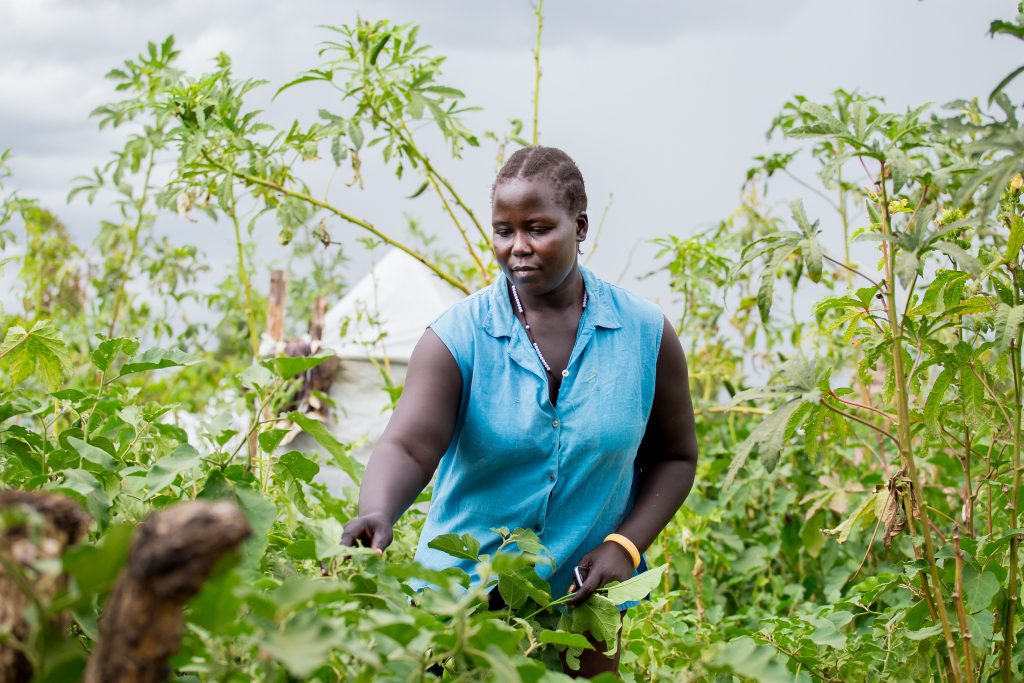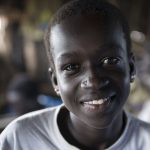
Eastern Africa
In Eastern Africa the volume of FCA’s staff was 101 and the number of partners 10.

In Eastern Africa the volume of FCA’s staff was 101 and the number of partners 10.

“Our elementary school was destroyed in the battles in 2015. We had no school for two years. We had to do our schoolwork outside. The rain and the scorching sun made it hard to learn. The school facilities built by FCA made it possible for us to concentrate again. Education will help us improve the wellbeing of our community. I always encourage my classmates to do their best in school so that we can rebuild our community in the future.”
Nyatonga Chol, 13, South Sudan
In 2017, the impact of the prolonged conflict in SOUTH SUDAN was particularly visible through a shortage of food. In February, the UN declared that famine was affecting part of Unity State.
Finn Church Aid supported an extensive humanitarian operation, through which the World Food Programme’s helicopters dropped packages of food in the region. In June, the famine was officially declared to be over.
FCA has improved the opportunities for nearly 2,000 people to earn a livelihood and obtain food for their families. For example in Fangak, 500 families received agricultural training, tools and seeds.
FCA continued to construct and rehabilitate school facilities, and to provide scholastic materials to support the return to school of children affected by conflict. Supporting for instance parents-teachers associations proved a successful way to impact on community participation and increase ownership of the projects. In 2017, FCA also started to support secondary education; thanks to the increased trust, FCA has influenced the planning of education on a national level.
In 2017, UGANDA experienced Africa’s worst refugee crisis, with over one million refugees crossing the border from South Sudan. In recognition of FCA’s refugee work, Uganda and the UNHCR chose FCA as a partner in advancing the cause of education and livelihood in Bidibidi, the second largest refugee settlement in the world.
In Bidibidi, FCA facilitated and guided work in the education sector with educational materials, school facilities, teacher training and by increasing the knowhow of school staff and families in the search for sustainable solutions.
In the past three years, FCA’s work in Uganda has made it possible for 46,356 children to go to school. During the same period, 1,648 teachers have received training in pedagogy, classroom management, attending to the special needs of pupils and providing psychosocial support.
FCA’s work with livelihoods in the rural areas of Uganda has raised 74 percent of the 2,088 families getting assistance from the project above the poverty line in 2017.
In village savings groups supported by the Women’s Bank, 2,444 people have succeeded in saving 95,400 euros. The 292 newly established enterprises created 876 jobs in the private sector, out of which women took up 788.
In SOMALIA, FCA has successfully improved livelihood opportunities of the country’s internally displaced people through livestock interventions. During long-term projects, many families have succeeded in raising the number of animals to at least three times the number of cows and goats originally given to them.
Approximately 400 religious and over 2 000 traditional leaders were involved in the district council formation process in Somalia, and in the rehabilitation and reintegration process of ex-combatants.
In KENYA, 20 youth and women groups who lost their entire household livestock to cattle raids, were trained on various income generating activities.
Women groups were financially supported to start farming or other alternative livelihoods in their communities. Young, former warriors received 300 goats. The strengthening of livelihoods has prevented cattle raids and other incidences of conflict.
Peace mediation between the Pokot and Markwet tribes continued with 36 meetings, in which a total of 1,634 people negotiated ways to continue peaceful co-existence in the area.
In ERITREA, FCA works in the education sector, strengthening the education of teachers in the two teacher training institutes in the country. FCA has promoted the introduction of new teaching methods and research as well as increased research-based teaching. Teacher training instructors were provided with training, workshops, study groups as well as individual and group guidance sessions.
During the year, 17 articles based on action research were published in a professional collection of articles. FCA participated in the development of curricula and training programs for teacher training in a significant way.